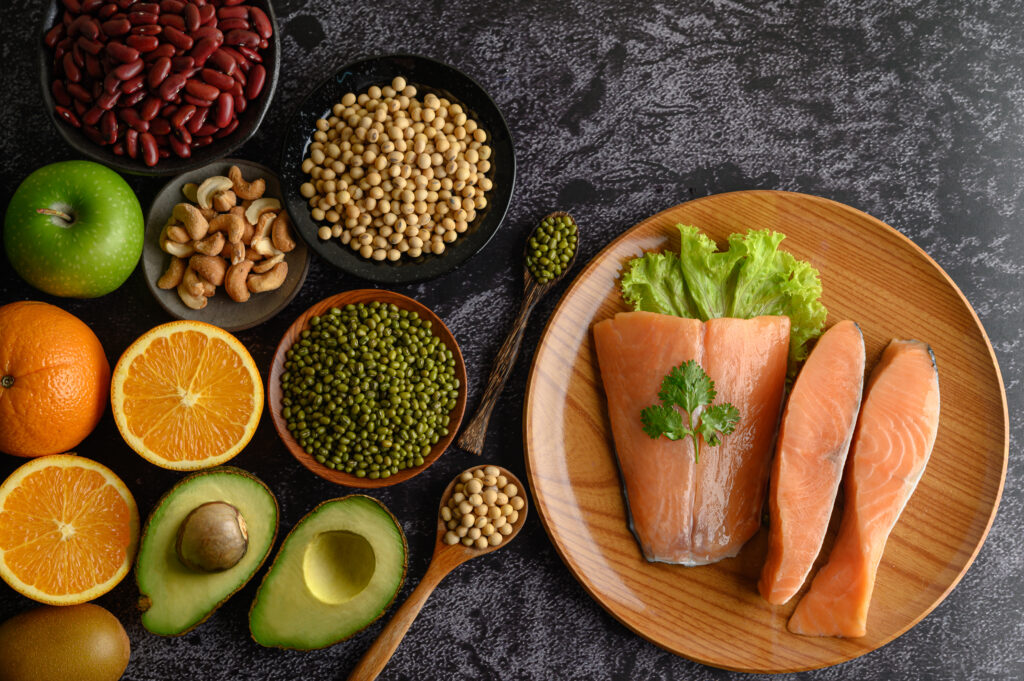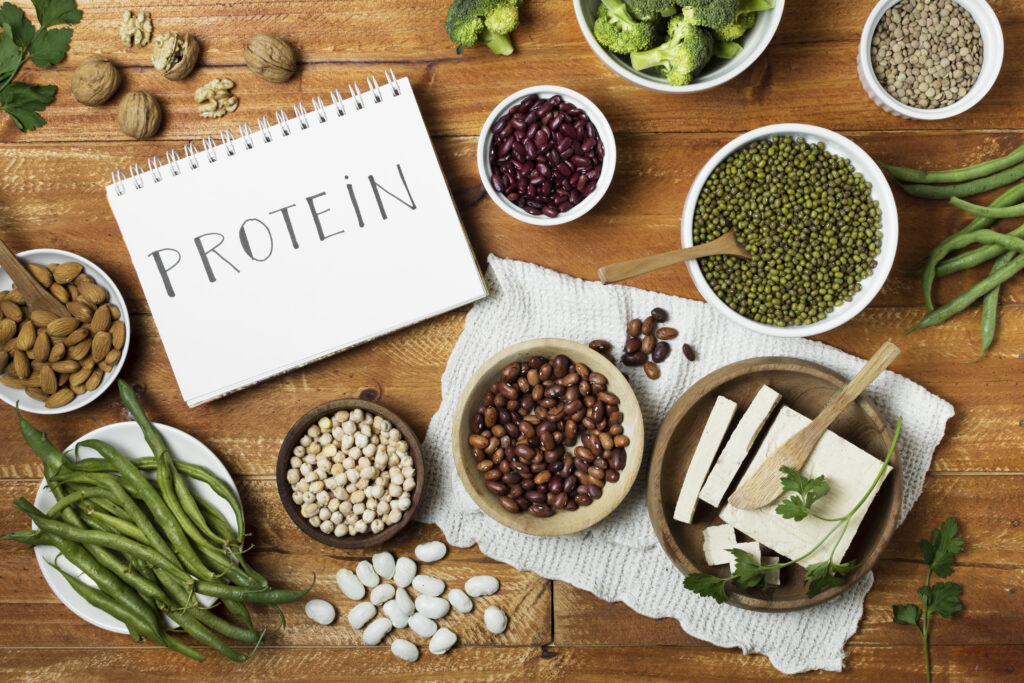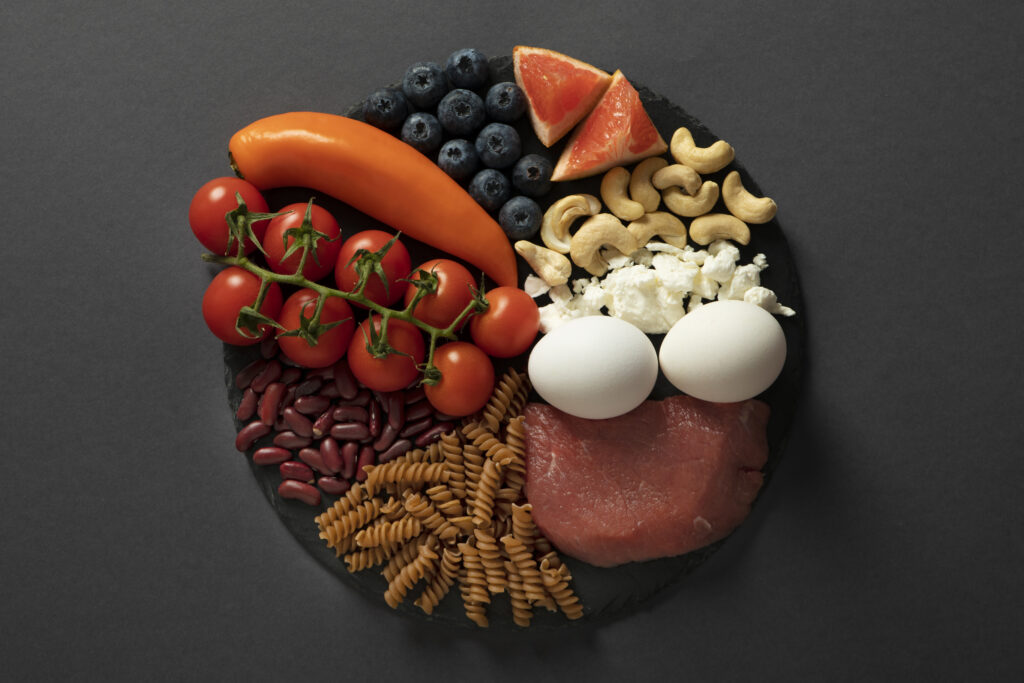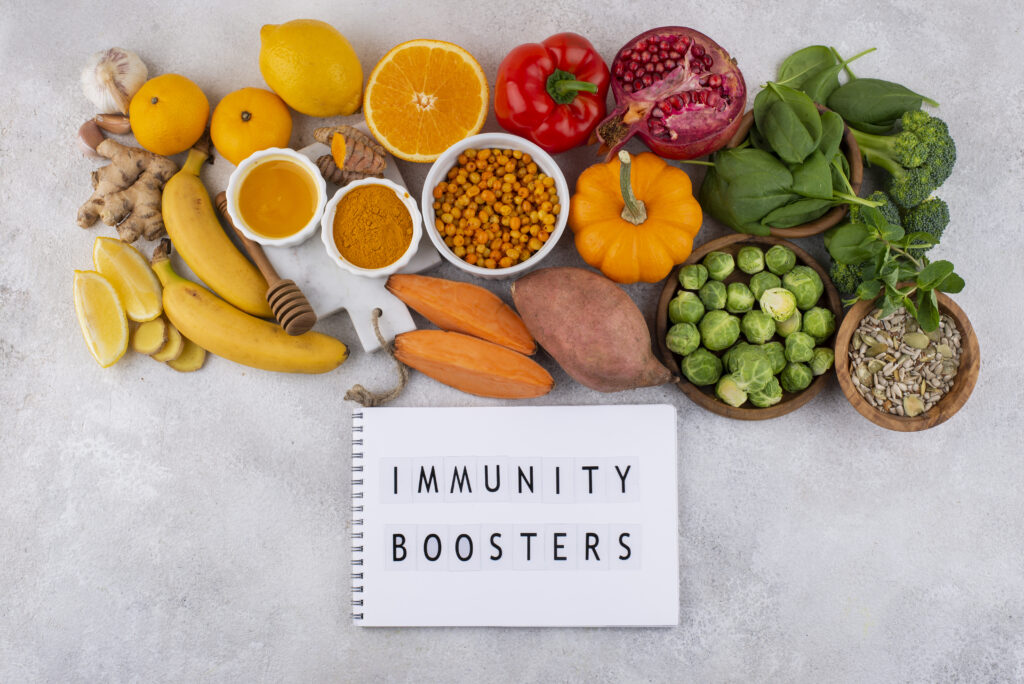
Metabolism is a crucial process in our bodies because it is responsible for converting the food we consume into the energy that we need for doing everything from breathing to running.
It not only provides energy but also plays an important role in weight management. Many people try to lose weight but they fail although they put their best efforts and metabolism can be the biggest reason for their failure.
That’s why it is important to understand the role of metabolism in weight loss.Certain foods have been scientifically proven to naturally boost metabolism.
By incorporating these foods into your diet, you can boost your body’s ability to burn fat more effectively, making it easier to maintain or achieve a healthy weight.
In this blog post, we’ll look at specific foods that can boost your metabolism and help you burn fat, as well as practical tips to help you on your weight loss journey.
Table of Contents
ToggleHere are the List of Foods That Boost Metabolism and Burn Fat:
1. Protein-Rich Foods

Protein-rich foods play a significant role in boosting metabolism due to their high thermic effect of food (TEF), which refers to the energy required to digest, absorb, and process nutrients.
Consuming protein-rich foods helps to maintain and grow muscle mass. Muscle tissue is metabolically active, which means it burns more calories while at rest than fat tissue.
Protein-rich such as:
- Lean meats
- Fish
- Eggs
- Dairy
- Legumes
- Nuts
- Seeds
2. Green Tea
Green tea is well-known for its metabolism-boosting properties, which are attributed in large part to the presence of catechins, a type of antioxidant.
Green tea, when combined with regular physical activity and a balanced diet, can be a useful natural aid in achieving and maintaining a healthy weight. The combination of these components makes green tea an effective beverage for increasing metabolism and fat-burning processes.
3. Coffee
Caffeine, a natural stimulant found in coffee, plays an important role in increasing metabolism and promoting fat burning, especially during exercise.
Caffeine increases metabolic rate by stimulating the central nervous system, resulting in increased energy expenditure even when at rest. Caffeine also improves fat oxidation, allowing the body to use stored fat as an energy source more efficiently.
When consumed in moderation, coffee has the combined effects of increased metabolic rate and enhanced fat oxidation, making it a powerful tool in a weight management strategy that includes regular exercise and a balanced diet.

4. Chili Peppers
Capsaicin works by increasing the body’s energy expenditure, also known as thermogenesis, which occurs when the body burns calories to generate heat. When consumed, capsaicin stimulates the sympathetic nervous system, raising core body temperature and increasing metabolic activity.
According to research, regular consumption of capsaicin-containing foods can result in a modest but significant increase in metabolic rate, making chili peppers an important addition to a diet aimed at increasing metabolism and promoting fat loss.
5. Whole Grains
Whole grains play a crucial role in boosting metabolism. The fiber content in whole grains helps regulate blood sugar levels, preventing spikes that can lead to fat storage. By keeping you full longer and providing a steady source of energy, whole grains not only aid in weight management but also support overall metabolic health.
Incorporating these grains into your diet can enhance your body’s ability to burn calories more efficiently, contributing to long-term fat loss and improved health.
Some whole grains are:
- Brown Rice
- Oatmeal
- Quinoa
- Whole Wheat
- Farro
- Millet
- Bulgur
- Amaranth
- Teff
6. Coconut Oil
Coconut oil is a unique fat source made up primarily of medium-chain triglycerides (MCTs), which have distinct metabolic effects.
MCTs have been shown to promote fat loss by increasing thermogenesis, the process by which the body generates heat, which helps to burn calories more efficiently. Consumption of coconut oil can also cause a sense of fullness, lowering overall calorie intake and contributing to weight management and fat loss.
Individuals who incorporate coconut oil into a well-balanced diet may experience a small but significant increase in metabolic rate, aiding in the journey to a leaner physique.
7. Apple Cider Vinegar
Apple cider vinegar (ACV) is gaining popularity as a natural remedy for a variety of health benefits, including its potential role in fat loss and weight management. One of the primary ways ACV may aid in fat loss is by increasing satiety, or the feeling of fullness after eating.
This is largely due to acetic acid, the main active component in ACV, which has been shown to slow down the rate at which food leaves the stomach, allowing you to feel fuller for longer periods of time.ACV has also been linked to improved blood sugar levels and insulin sensitivity, both of which are important factors in fat storage and metabolism.
8. Water
Water is essential for a variety of bodily functions, including digestion, nutrient absorption, and temperature regulation, so it plays an important role in metabolism maintenance and enhancement. Staying hydrated ensures that the body’s metabolic processes run smoothly, allowing it to convert food into energy more effectively.
Drinking water before meals can boost satiety, which leads to lower calorie intake and aids in weight loss. As a result, incorporating adequate water intake into your daily routine is a simple but effective way to boost metabolism and promote fat loss.

9. Dark Chocolate
Dark chocolate, particularly those with a high cocoa content, is not only a delicious treat, but it may also boost metabolism due to its high concentration of flavonoids, particularly catechins and epicatechins. These potent antioxidants have been shown to improve the body’s ability to metabolize fats efficiently.
Dark chocolate’s flavonoids may increase the activity of certain proteins involved in fat oxidation, promoting the breakdown of fat cells for energy. Consuming moderate amounts of dark chocolate can also aid in blood sugar regulation by improving insulin sensitivity, which is essential for maintaining a stable metabolism.
While dark chocolate should be consumed in moderation due to its high calorie content, adding a small amount to your diet can be a delicious way to support metabolic health and promote fat burning.
10. Fiber-Rich Foods
Fiber-rich foods, such as vegetables, fruits, and legumes, play an important role in increasing metabolism and fat loss. These foods are high in dietary fiber, which is necessary for proper digestion and gut health. Fiber adds bulk to the diet, slowing digestion and promoting a long-lasting feeling of fullness.
Fiber regulates blood sugar levels by slowing sugar absorption, which helps to prevent energy crashes and aids in weight management. Fiber-rich foods promote healthy digestion and reduce hunger, resulting in increased fat burning and a more balanced metabolism, making them an important part of any weight loss or health-conscious diet.
Conclusion
Finally, this blog post discussed how various foods can effectively boost metabolism and aid in fat loss. We’ve highlighted key metabolism-boosting foods like protein, green tea, coffee, chili peppers, and whole grains, each of which has a unique contribution to increasing metabolic rate and promoting fat loss.
In addition, we discussed how incorporating coconut oil, apple cider vinegar, and fiber-rich foods can further support your weight management goals. It’s important to remember that incorporating these foods into your diet gradually and consistently is key to experiencing their benefits.
I encourage you to experiment with these ingredients and see how they improve your metabolism. Share your favorite metabolism-boosting foods or any tips you’ve found useful in the comments section below, and let’s start a discussion about how to make our diets work harder for us in achieving our wellness goals.
FAQs
Protein-rich foods, such as lean meats, fish, and eggs, are especially effective at increasing metabolism due to thermic effect (TEF). Green tea, chili peppers, coffee, and whole grains are also metabolism-boosting foods, as they increase energy expenditure and fat oxidation
Yes, certain foods can aid in fat loss by raising your metabolic rate, promoting fat oxidation, and increasing satiety. Chili peppers, for example, contain capsaicin, which can boost metabolism, whereas green tea contains catechins, which can help you burn fat while exercising.
- You can add metabolism-boosting foods to your daily diet. There is no set frequency, but consistently incorporating these foods into meals and snacks can help maintain an elevated metabolic rate over time.
Yes, staying hydrated is critical to maintaining a healthy metabolism. Drinking cold water can temporarily boost your metabolism because your body expends energy to warm the water to body temperature. Water also aid
Coffee, particularly due to its caffeine content, can boost your metabolic rate and aid in fat loss during physical activity. However, moderation is essential, as excessive caffeine consumption can result in negative side effects such as jitters or insomnia.
Also Follow Us On-